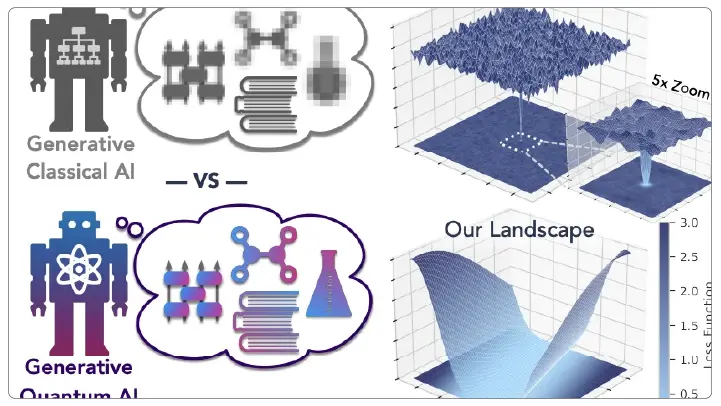Generative AI and Quantum Power Converge in Google’s New Study
A team of Artificial Intelligence researchers at Google Quantum Lab revealed the first evidence of “Generative Quantum Advantage.” It shows that quantum computers can learn and generate output simultaneously, beyond the reach of classical machines. This claim was supported with the use of a 68-qubit superconducting processor, which shows tasks like generating complex bitstring distributions coupled with quantum circuits and quantum states.

Quantum researchers have found out for the first time that quantum computers can produce hard-to-simulate results and also learn to create them. It is a crucial step that reaffirms what the authors call “generative quantum advantage.” However, real-world applications of such models have yet to be confirmed, and further advancements in hardware and algorithms are necessary for practical application in day-to-day life. For years, it has been believed that quantum computers cannot learn from new data and only generate output through a random sampling process. However, Google researchers claimed that quantum computers can learn probability distributions with a higher complexity rate, that it is nearly impossible for a classical system ever to match their level of intelligence, and cannot reproduce efficient output as quantum computers would offer.
Despite the popularity of large language models, which use huge datasets to identify patterns from billions of sentences and then generate innovative text that resembles natural language. However, it has limitations as a classical system, which quantum systems can override. In a practical way, creating new molecular structures, material configurations, and error correcting codes with the help of quantum data, highlighting that classical models would never be able to generate such insight with precision, no matter how scalable their hardware is.
However, it is important to note that the experiments left proof-of-principle, and more work is required to be performed to support this claim. While quantum models have outperformed classical models in scaling tests, they are still in the pipeline and require further development to be applied in real-world applications, depending on system size and noise level as well. According to the researchers, quantum generative models may emerge as a result of their performance on real data, rather than just theoretical tests, showcasing a revolutionary step in the quantum era.